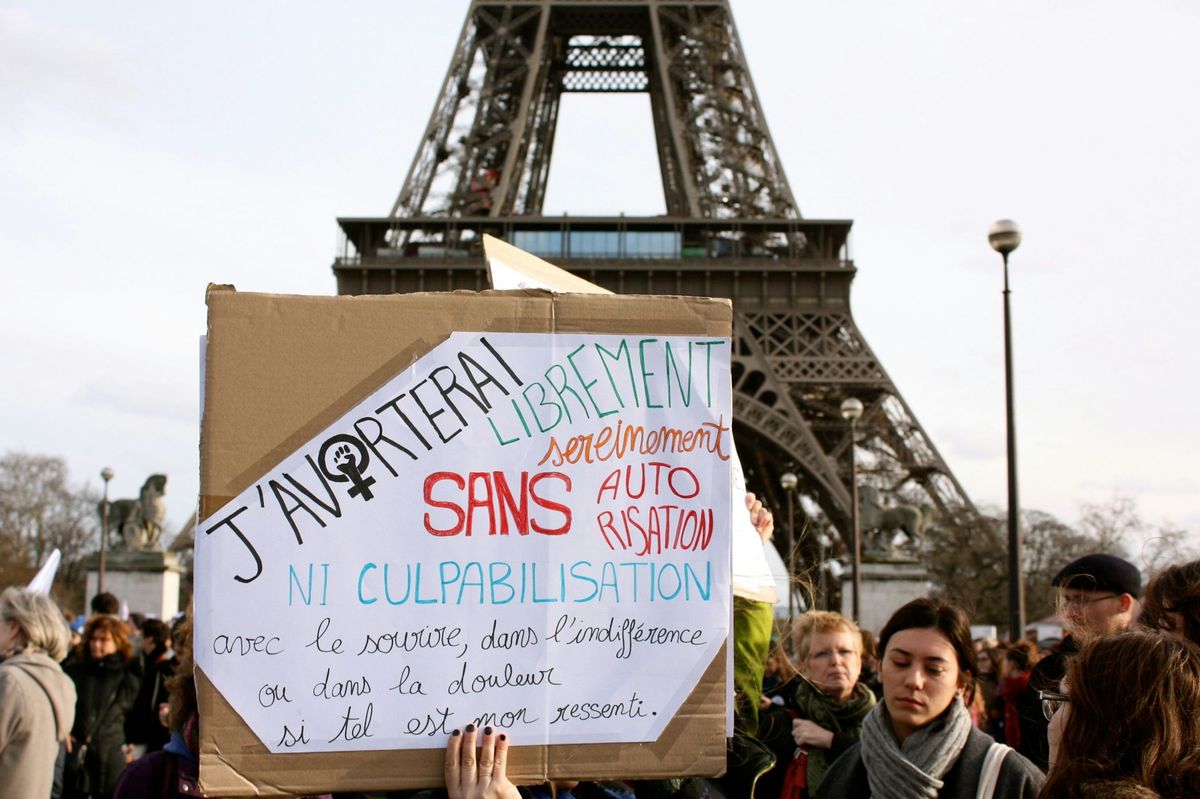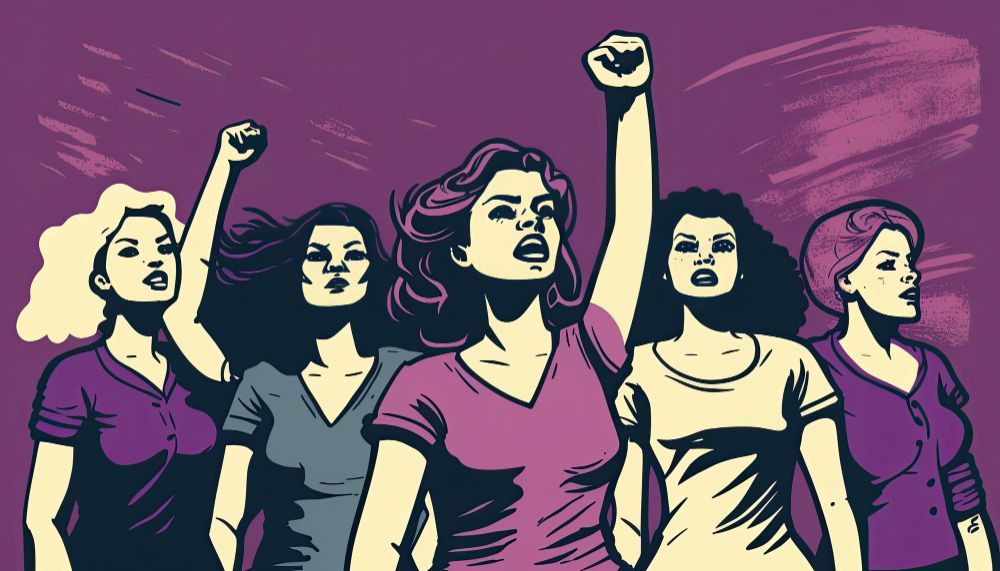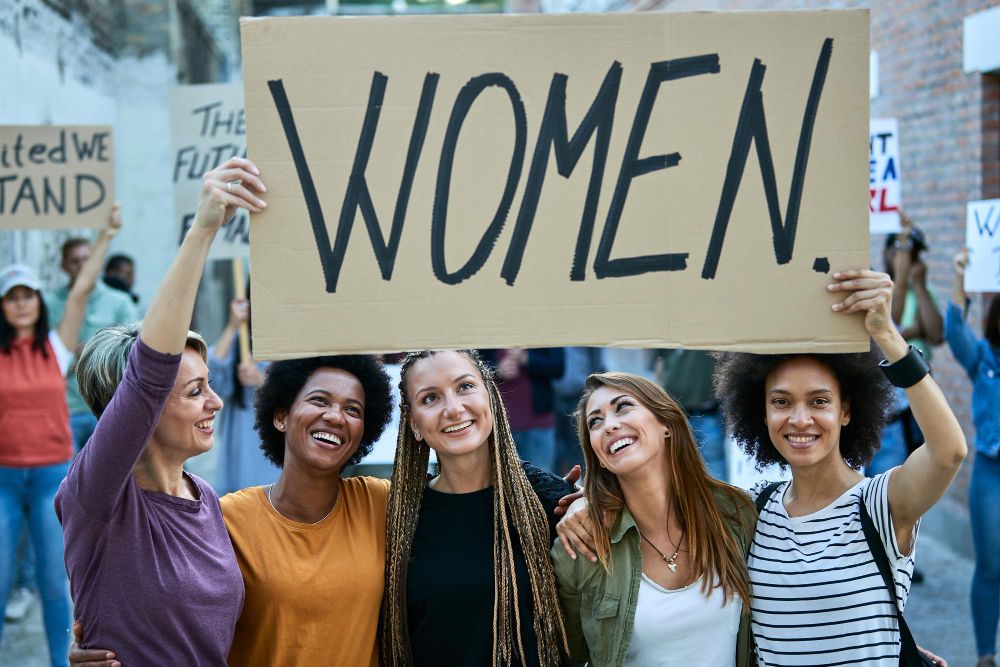Revolutionary Origins of Feminism and Beyond: A French Perspective

France has retained a reputation of being the melting pot of numerous ideas, philosophies, and movements that have catalyzed global transformations across the rest of Europe and, subsequently, the world. With the nation and its people known for their quest to challenge the extant status quo and bringing about numerous ground-up upheavals, it comes as no surprise that feminism, too, has a rich history in France. Of particular importance are the works that illuminated the minds of France’s people toward the close of the 18th century. Besides the boiling cauldron that wrought forth the French Revolution, the same period was also quintessential in kickstarting societal recognition of a woman’s role in the world. While today’s bookshelves and reading lists might have a wealth of feminist literature, trying to script the story of feminism’s progress without taking into account French literature’s contributions would only lead to an incomplete exercise.
As the masses aimed to create an established framework for their ambitions of liberty and freedom, the stereotyping and denigration of women became evident through the works of pioneering French feminist writers. This included stalwarts like Simone de Beauvoir and Madame de Staël, who wrote of women breaking free from their expected gender roles. Radical and revolutionary, the consciousness spread rather rapidly with numerous female writers furthering their cause through literary flair. French contributions to the origins of feminism, specifically during the tumultuous era of revolutions are all the more significant. They undoubtedly led to the blossoming of an inalienable ideology of the modern world, which provided women across the world with the freedom they’re innately born with.
The Origins of Feminist Thought in French Literary Circles

The dawn of a coherent feminist approach and the consolidation of women’s demand for equal representation in spheres of public life go back to the chaotic era of the French Revolution. Both men and women played an integral role in curtailing the powers of the monarchy and nobility. However, the role of women in the revolution was seen as controversial despite their significant contributions to the concretization of the revolution’s aims and ideals. Women’s participation in demonstrations and riots over affairs such as rising prices was seen as unseemly even by male revolutionaries who were protesting against similar issues, and the sentiment against women consolidated in the Legislative Assembly by 1793. Women were still viewed in their stereotypical roles and were held to absurd standards from earlier notions of womanhood.
The dawn of the Age of Enlightenment also witnessed the questioning of religious impositions and the arrival of individual rights. Writers like Rousseau, Diderot, and Voltaire stirred the pot by questioning existing hierarchical paradigms and advocated strongly for a humanistic ideal that drew from Renaissance-era awakenings surrounding the role of man. Invariably, the rights of women, too, were put into question and the othering of women in this process of catharsis was very prevalent during the French Revolution. Regardless, pioneering female literary figures like Madame de Staël and Olympe de Gouges penned works that would set the stage for a renewed identity for women in the social as well as creative spaces. Strong female leads became the norm in de Staël’s works like Corinne and Delphine, while de Gouges went on to write the radical Declaration of the Rights of Woman and of the Female Citizen in response to the Declaration of the Rights of Man and of the Citizen. The declaration proved to be a key document that laid the foundations going right up to the Suffragette movement in France, calling for equal rights and voting privileges for women.
The closing years of the 18th century brought forth several feminist thinkers who indulged not only in literary expression but also in intellectual discourse, which would set a benchmark for arguments in favor of women’s rights. Literary gatherings and salons with women thinkers spearheaded the discourse on pitting women’s rights as a key issue in public thought. Intellectuals like Madame Geoffrin organized and participated in numerous discussions that brought about the necessity for women to carve out an independent identity for themselves beyond the traditional gender roles ascribed to them and one beyond societal expectations of a woman. While the transition into the 19th century was still rife with gender stereotypes and a considerable degree of discrimination against renegade women of the time, it became evident that the age-old oppressive structures were finally exhibiting fractures.
First Wave Feminism and Concentrated Effort

Feminism in both French literature and popular French discourse began coalescing into a formalized movement over the 19th century, following a period of healthy synthesis in the initial half of it, succeeded by a more potent effort in the latter part of the century. The ideas generated during the French Revolution, regime changes, and political turmoil took a new form under numerous thinkers. Feminism was conjured as a rebellion not only against mere gender roles but also the overall framework adopted in the immediate aftermath of the revolution. While Enlightenment values still prevailed, female thinkers realized that even the transformative Enlightenment age values defined women only in their roles associated with men and were parroting older tropes, albeit in a repackaged fashion. Writers like Amantine Lucile Aurore Dupin wrote powerful works under the pen name George Sand, and explored complex themes like female autonomy and a tapestry of emotions in her popular works Valentine and Indiana. Her works featured strong and independent women in lead roles, offering readers a fresh perspective of what women’s autonomy would seem like at the time. She, too, challenged gender roles by sporting men’s clothing and accessories in her personal life, inspiring other women to rethink their predicaments and resist prevailing gender dynamics in French society.
Works like The Red Virgin furthered the cause of gender reform and were penned by other feminist writers like Louise Michel. On the journalistic front, journals like La Voix des Femmes and La Gazette des Femmes communicated feminist ideals and spoke of women’s rights and autonomy with vigor. These journals were founded by feminist writers including Eugénie Niboyet and George Sand. The othering and complete sidelining of women despite revolutionary change was made more evident throughout the 19th century, essentially making way for the initial leg of first wave feminism in France and French writings.
20th-Century Feminism and Identity

The closing years of the 19th century and the initial decades of its successor allowed symbolism to make its mark across literature, and French literature, too, witnessed rich works with a wealth of symbolist elements. Apart from the rigid structures of earlier works, symbolists preferred to write about the mystical world and the inner workings of the human psyche and the emotions that drive it. Feminist literature became infused with symbolist influence as well. Writers like Rimbaud captured complex depictions of emotional expression through their writings, and the trend was quick to catch on. Women were associated with the element of beauty and mystery, triggering widespread depictions of women as ideal beings who possessed a magnetic aura around them. However, challenges to these notions would soon follow, given that these depictions also stemmed from stereotypes and traditional female gender roles. Both female writers as well as artists aimed to break free from such depictions and do away with the cliché depictions of women as ethereal beings, enigmatic personalities, and seductresses. Playwrights like Rachilde delved into highly provocative themes for their time, which included free expression of female sexuality. Later feminists who came in the latter half of the 20th century would approach earlier symbolist works and critique them at length for subconsciously furthering biases against women and their roles in societal frameworks.
The second half of the 20th century brought about the synthesis of second wave feminism, which furthered women’s interests and autonomy in several other domains. Going beyond the basics, it catalyzed the demands for women to become more active participants in the economy and other aspects of social life including politics. Stalwart feminists like Simone de Beauvoir emerged during this period, enlightening the discourse with a philosophical take on feminism. The mid-1940s and 50s witnessed a slew of French existentialist philosophers who contributed extensively. Beauvoir, too, was an existentialist philosopher who wrote a seminal work—The Second Sex—which, even to this day, is considered to be a foundational text for modern feminism. Beauvoir dealt with feminism like no other contemporary, unpacking the facets of historical ills, the notion of othering, societal marginalization, and subconscious oppressive constructs. Moreover, conceptualizations of how social and cultural roles condense to create a female identity were also outlined in her works. Other writers like Marguerite Duras also explored the requirement for female bodily autonomy—a key element in second wave feminism. Literary figures of the time were also prominent activists, often paving the path for access to abortion and birth control in the medical niche, while also demanding increased economic benefits and incentives for women in the workforce.
Contemporary French Feminism and the Future

Modern French literature from the closing decades of the 20th century and in the 21st century has been a mix of several voices, themes, and reflections. The dawn of intersectional feminism and its adoption by French feminist writers and thinkers has been of major importance in French literary spaces since third wave feminism came to be. Topics such as postcolonial experiences of women from formerly subjugated populations, lives of migrant women, and voices of LGBTQIA+ contributors have been of particular interest. Authors like Virginie Despentes have drawn together complex linkages between identity, sexuality, and feminine expression in their works, illuminating present-day women’s issues. Numerous factors affecting the 21st-century woman have been explored in more recent feminist literature, including elements such as race, trauma, sexual orientation, privilege, and socioeconomic standing. Writers like Chantal Chawaf have paid specific attention to immigrant women and their experiences in current-day France. Feminist literature in France has also fomented considerable activism that has pushed forth metacognition, making the movement more inclusive, bringing women from all races, ethnicities, sexual orientations, and roles to present a united front for the motley issues faced by them. Advocating for the rights of marginalized groups within literary and feminist spaces has been a key aspect of the movement today.
Literary criticism has been another prominent part of contemporary French feminist literature. An assessment and breakdown of classic works in the language have been attempted by numerous authors, leading to a rich culture of literary critique. Works from celebrated authors such as Victor Hugo and Marcel Proust, too, have been assessed and critiqued for their depictions of women and the undercurrent of othering. Representation and reclaiming perspectives for women have been another integral part of contemporary French feminist works. French writers like Alice Zeniter have also explored convoluted themes of belonging and how it ties to intersectional aspects of women’s issues in her work The Art of Losing. Further, the policing of women’s bodies and their autonomy has been fiercely challenged by contemporary authors like Pauline Harmange.
Overall, French feminism has also had significant implications for the movement across the world. Like all social philosophies, French feminism in literary circles and beyond is still evolving as the world warps with the numerous perspectives put into discourse. The digital revolution and its consequences like the arrival of artificial intelligence will further add varied elements to extant paradigms. As women continue to reclaim their narratives, French literary feminism remains a fine source of both inspiration and insight.
Enter your email below to sign in or become a 4W member and join the conversation.
(Already did this? Try refreshing the page!)



Comments